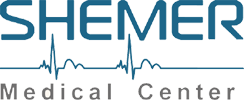Call 24/7: +972-46530612
WhatsApp:
+972-533088176
Email: [email protected]
Pulmonology
|
Pulmonology provides services for patients with respiratory difficulties and diseases, and a complete array of investigative services for patients of all ages.
The Outpatient Service General and specialized outpatient clinics are held within many Israeli institutes for patients referred from the community, from other departments, from other hospitals and for patients who wish to avail themselves of the services of the Institute. Bronchoscopy - is an essential tool for the evaluation of patients with a wide variety of pulmonary diseases. Most of these procedures can be performed using topical anesthesia and light sedation or brief general anesthesia in children. Operative bronchoscopy procedures include biopsies, laser surgery and the insertion of stents, and chiefly but not always, for the palliation of malignant disease. Auto-fluorescent bronchoscopy is used for the early detection of lung cancer. The Lung Function Laboratories The clinical service is complemented by the lung function laboratories which are equipped to undertake a wide range of tests in patients of all ages, including spirometry, measurements of lung volumes, airway resistance, diffusing capacity and blood gases. Progressive exercise testing is used to evaluate patients with breathlessness. Bronchial provocation tests for the diagnosis and management of asthma are used extensively, and special techniques have been developed to make them available for young children. A special laboratory undertakes sophisticated lung function tests in infants. Areas of Research  Development of hardware and computer techniques for the measurement of lung function in infants. Development of hardware and computer techniques for the measurement of lung function in infants. Acoustic analysis of breath sounds for the detection and quantification of wheezing in infants and young children. Acoustic analysis of breath sounds for the detection and quantification of wheezing in infants and young children. Studies of bronchial reactivity in infants, children and adults with asthma and other types of chronic lung disease. Studies of bronchial reactivity in infants, children and adults with asthma and other types of chronic lung disease. Studies of nitric oxide levels in normal adults and children and in patients with lung disease. Studies of nitric oxide levels in normal adults and children and in patients with lung disease.
|
